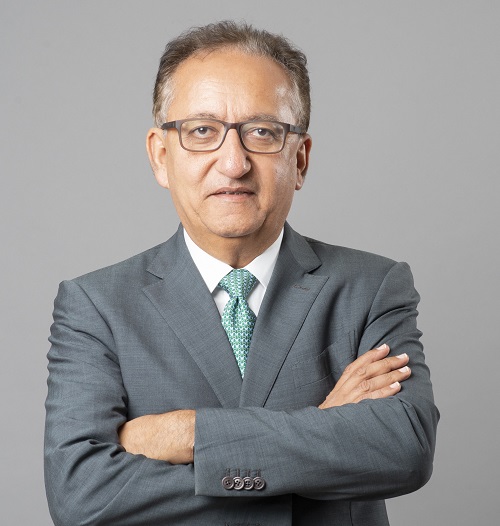
First Capital Bank (FCB) owner, Hitesh Anadkat, has offshore accounts in tax havens which experts say are used to hide assets and evade taxes.
Anadkat’s offshore accounts have been revealed in the Pandora Papers, an investigation by the International Consortium for Investigative Journalists (ICIJ) which reveals the secret deals and hidden assets of more than 330 politicians and high-level public officials in more than 90 countries and territories, including 35 country leaders.
Anadkat is one of the richest Malawians. His family has stakes in various companies including, Letshego Holdings a microfinance holding headquartered in Gaborone, Botswana.
According to Platform for Investigative Journalism (PIJ), documents show that Reid International Ltd made payments to Premier Capital (Mauritius) Ltd which owns First Capital Bank. In 2014, Reid International Ltd borrowed $750,000 from Falcon Private Bank in Zurich, Switzerland.
Hitesh and Meeta Anadkat have also been revealed to have been joint owners of a company called Reid International Limited incorporated in British Virgins Island (BVI), a tax haven, in 2010.
Speaking to PIJ, Anadkat, said he had done nothing illegal and claimed that he is among Malawi’s highest taxpayers.
“It’s how the international system works; I have international companies and I have offshore accounts. I cannot give you more insights than you have.
“I have not done anything illegal. I have a British passport. I am a legitimate businessman,” said Anadkat.
Malawian businessman Mohamed Abdul Gaffar Kassam has also been named in the documents. Kassam is the owner of Globe Electronic Limited and the company had dealings with the Malawi Defense Force (MDF).
In 2016, suspicions over the supply and delivery of motor vehicle communication equipment to MDF led to Kassam’s arrest. The issue is yet to reach a conclusion as Kassam and another suspect have been battling in court to restrain the Anti-Corruption Bureau from prosecuting them.
Also named in the documents is, Tushar Vinodrai Lakhani, who was arrested in 2015 for illegal externalization of forex
According to PIJ, Lakhani registered an official company, Infinity Trading Company Ltd., created in the United Arab Emirates in 2012 and channeled funds to official accounts and was able to move funds to offshore accounts.
Tax justice activists estimate that Malawi loses over 46 billion Kwacha each year because of multinational corporate tax abuse and people evading taxes.
In an interview with PIJ, Malawi’s Attorney General Thabo Nyirenda admitted that tax havens and shell companies have frustrated the country’s efforts to prosecute those who steal from the government or externalize its hard-earned foreign currency.
Nyirenda, a former financial crimes prosecutor for the country’s Reserve Bank, said in an interview, said countries where such accounts are domiciled have also regularly failed to comply with requests for information required for criminal investigations and proceedings.
“There is secrecy in those jurisdictions. From experience with cases I have been dealing with, Hong Kong, Mauritius, Netherlands, Switzerland, Dubai and Panama is destination of funds stolen from Malawi or externalized forex,” said Nyirenda.
“These loopholes huge multinational companies too exploiting the global financial system, creating shell companies in various jurisdictions to facilitate illicit transfer pricing,” said Nyirenda.
He called for the need to adjust to the new sophisticated techniques criminals and companies are devising to exploit the weaknesses in the financial system, saying efforts have to be made both at home and in the international community.
Rachel Etter Phoya, a Researcher for the Tax Justice Network (TJN), noted that treaties which Malawi has with countries such as Switzerland France and the UK are outdated and were mostly signed before Malawi became independent.
She said: “One of the problems with all of these tax treaties is that they include far lower withholding tax rates than the usual ones applied in Malawi which is a sure way to encourage companies to shift profits out of Malawi to avoid taxation.” (Authored by Golden Matonga and Gregory Gondwe)


